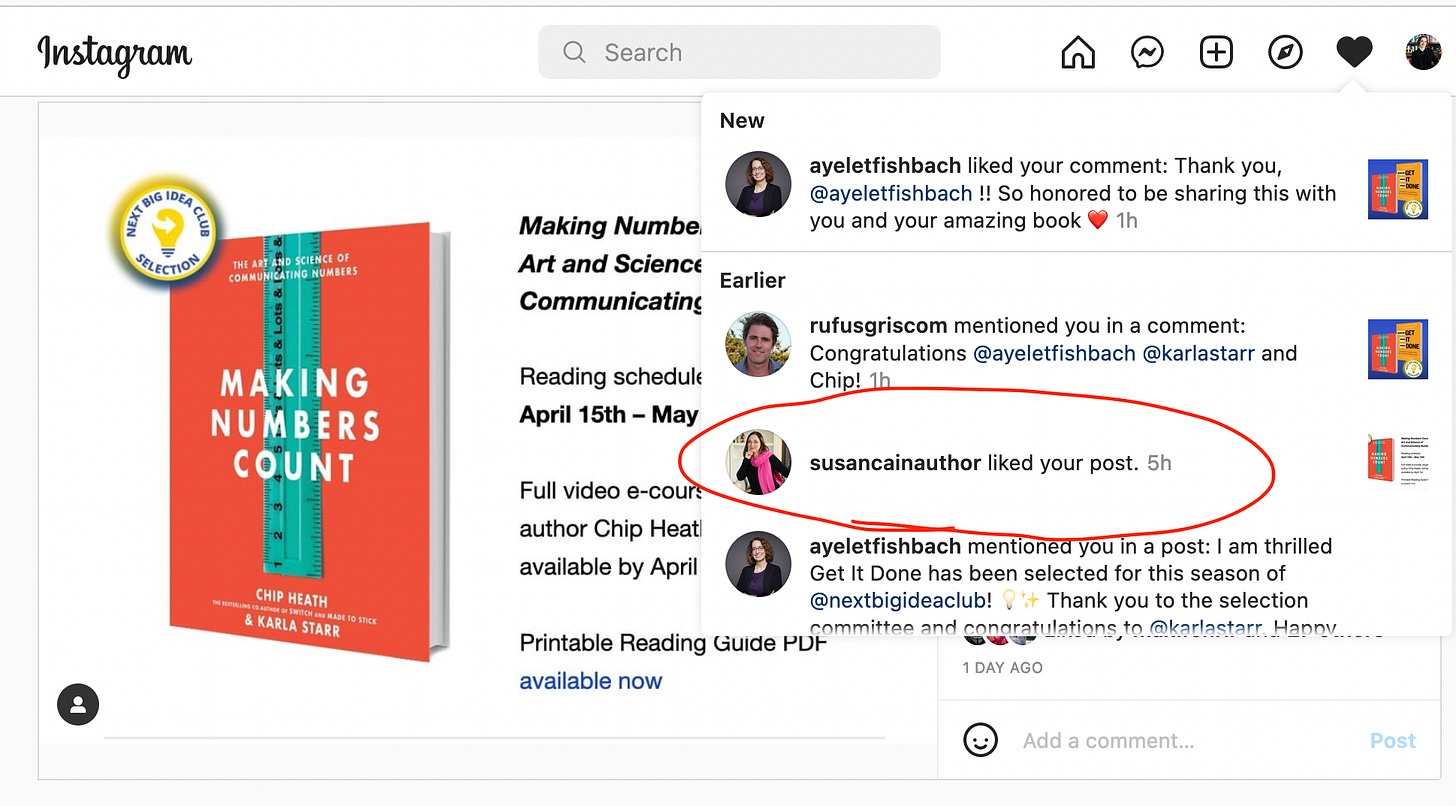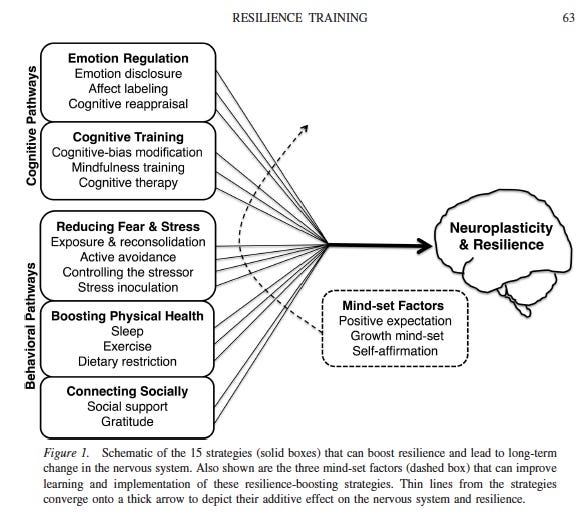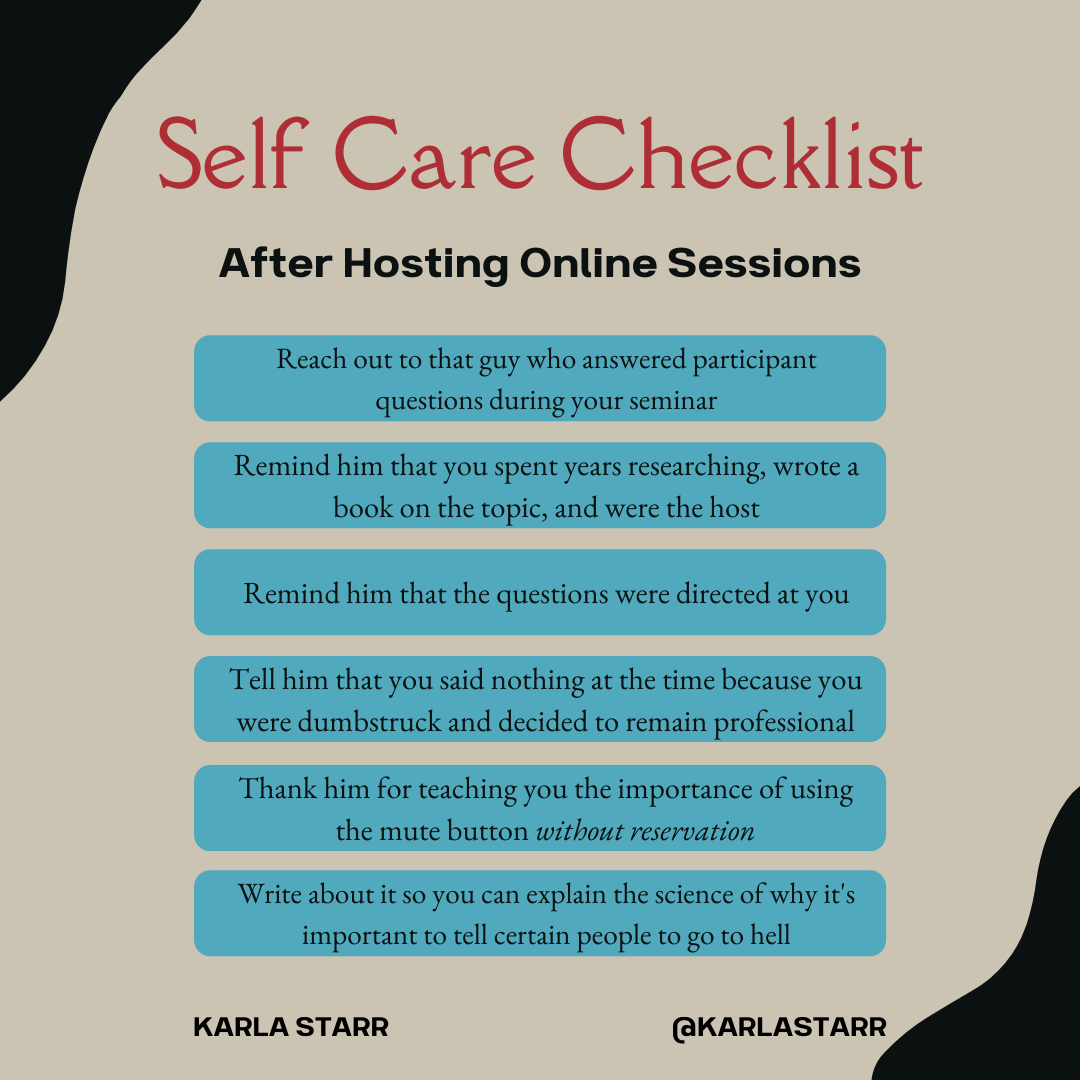What the Science of Resilience Looks Like IRL
My new book, Making Numbers Count, was just named one of this season’s picks in the Next Big Ideas Club! It’s a book club that Malcolm Gladwell, Dan Pink, Adam Grant, and Susan Cain run, and now I think it’s high time that we acknowledge that it is more important than the Pulitzer/Nobel/etc., which are probably chosen by old white men who should be canceled, amiright? Also, Susan Cain liked my Instagram post, which means that someone who does the social media of the woman who wrote Quiet knows my name! Fun times.

Do You Use Data for Work? Digits? Math things?
I’ve just started hosting free sessions about how to use the ideas in the aforementioned book Making Numbers Count: The Art and Science of Communicating Numbers:
Were math and English my two favorite subjects in school? Yes. But I never thought I’d actually enjoy this kind of thing as much as I do, so there ya go: life is random. I’m starting to do workshops and talk to companies/teams/etc. about how to communicate about numbers, and I’m now offering free sessions (see above!) to fine-tune these skills WHILE being able to help people solve what are essentially communication problems.
Last week was my first one, which I decided to do very last-minute, meaning that it was a small and intimate session that allowed me to fumble with various technological challenges in front of a forgiving crowd.
After reading as much as I’ve read about cognitive effort and mental fatigue, I’ve come to accept the fact that—in purely scientific terms—I can only give so many fucks on a daily basis, and every ounce of energy that I spend thinking about how I come across to every single person in the room is a second that I’m stealing from another, more important area of my life, like what kind of ice cream I should buy.
Because, you see, values.
That’s why I am myself. Always. Not in the “I’m going to fart at this funeral” sort of way, but the “I dislike putting on a “face” for others by projecting an air of perfection or sprezzatura (that art of trying oh-so hard to make it look like you’re never trying).” I value transparency and honesty, in part because I think the highly filtered version of reality we’re all getting online has a lot of negative consequences for our mental health. I prefer to interact with real people.
I’ve also worked with successful people who stress themselves out endlessly by constantly feeling the need to project perfection, and I don’t want to touch that with a ten foot pole.
This is a very long-winded way of saying that I didn’t prepare for my online LinkedIn workshop at all.

I just opened up a Google Meet link and started yapping to my friend Lauren and a few other people—and yet, felt surprisingly on top of things. As in, “oh, right, I’ve been preparing for this for years.” It started off well (brief introductions, yadda yadda), I discussed Big Important Ideas—and now I’m going to skip to the good part: a guy named Peter started answering questions that other people were asking me.
Why? Just… why?
So just imagine that you spent a few years researching a topic. Writing a book. You decided to take time out of your schedule, for free, to help readers work on their data communication quandries, and then some dipshit named Peter started answering questions that other people at the seminar were asking you, the leader/host.
At first, I thought, “oh, okay, this is like… a round table discussion. I’ll just play it cool.” But the other participants had asked me the question, not him. Here is why I’m making a big stink about it:
- I want to normalize calling out bad behavior.
- I need to learn how to deal with this better. This isn’t going to be the last time I have to deal with this, and reading about the dynamics at play has been really helpful for me.
- Resilience. Two resilience-promoting acts are “emotion disclosure” and “affect labeling,” which are just polite ways of saying “Acknowledge when something was fucking ridiculous.”
A user’s guide to resilience
Every time we do something, our brain stamps in that behavior as normal. As explained in this article on the negatives of venting:
You can think of our brain circuitry like hiking trails. The ones that get a lot of traffic get smoother and wider, with brush stomped down and pushed back. The neural pathways that sit fallow grow over, becoming less likely to be used.
Resilience is training our brain to act in new, productive ways that alleviate future stressors—either by buffering your resources or engaging in active coping by doing things that decrease the likelihood of a situation (being bullied at work) from happening again.

Active coping is not the same as venting. Venting is pointing at a behavior and picking at a wound. (Like watching the news, it can make us feel like we’re doing something about a situation, but doesn’t actually do anything to change the situation.) But looking at this chart, notice anything?
Plenty of resilience-promoting behaviors run counter to what women (or anyone who has been bullied) have been conditioned to believe is acceptable behavior. We’re told to accept it, to not make a big stink, to not say anything so that we don’t give off the impression that we’ll be difficult to work with in the future. While the more gender-stereotypical or socially acceptable activities listed above (social support, emotion disclosure, self-affirmation) can decrease stress after the fact, they do nothing to retrain our brains and learn how to stand up for ourselves in the future.Dr. Vassilia @JunoCounselingWhen you’re not used to being confident, confidence feels like arrogance. When you’re used to being passive, assertiveness feels like aggression. When you’re not used to getting your needs met, prioritizing yourself feels selfish. Your comfort zone is not a good benchmark.May 23rd 20211,924 Retweets4,338 Likes
During the meeting, I mostly made the “WTF are you kidding me?” face and tried to play it cool, and then I re-read that paper and now here I am.
Self-efficacy, or the belief in one’s ability to master life’s challenges, is a protective factor against depression and facilitates recovery from a wide range of traumas.
To summarize, engaging in active coping can strengthen the neural pathway for active coping and hence reduce future anxiety or negative affect. The key is for the coping to be active rather than passive. For example, an employee who holes up in his office to (passively) avoid his boss because of a recent harsh meeting and negative performance review would be helped by walking the hallways and chatting with liked colleagues and possibly even with his boss. This way, the employee takes a previously jarring experience that left him feeling immobilized and starts the process of rewriting it in his mind as manageable.
Actively controlling the stressor builds resilience because you’re is why it’s so important to say something and stand up for yourself in the moment, the way that Kamala Harris calmly told Mike Pence “I’m speaking.” It’s not about being a bully in response to a bully, but alerting someone—reinforcing it to yourself, and putting this energy right out there into the world—that you do not tolerate this kind of behavior. The cool thing about crossing this line and standing up for yourself is seeing, quite clearly, that the world does not end.
So I ended up messaging him LinkedIn:
I did just want to say that while I enjoyed having you, you answered a few questions that were directed towards me. I didn’t want to use the word mansplaining, so decided to wait and address it afterwards. It was informal and I’m sure you didn’t mean anything, but constantly having to face that makes me less likely to do these things in the future. Thanks for coming!
Peter invoked what the “I Have a Black Friend” defense (“I did something once that renders your interpretation of this event impossible”): “I’ve supported the book and even promoted it on Twitter, how can you say that I’ve been anything but supportive, or didn’t value your contribution?”
I told him that while I appreciated the Tweet, shutting me down was a stronger litmus test in how much he valued my contribution. I sent him messages that other people might think were overreacting. But whenever we think someone is overreacting, what’s usually happening is that we’re watching someone deal with a situation for the 1,000,000th time.
“This is a first world problem, get some perspective, don’t make a stink, things aren’t that bad.”
That’s exactly the kind of thing my Men’s Rights activist brother would say.1 It’s the kind of thing that women and the disenfranchised and the bullied have been told forever. But if you look at the research on resilience, making a big stink is precisely how you help stop this from happening in the future; how you lighten the load by sharing the experience with others to let them know that they’re not alone; how you can gain some psychological distance by seeing it through someone else’s eyes.
“Making a stink” is just another way of minimizing my experience—so I need to stop doing that, too. Let’s just call it what it is: calling out shitty behavior, even when no one else will, because the most unflappable form of resilience is when we learn how to become our own biggest advocates.
When we practice radical acceptance in these situations, all we’re doing (neural pathway-wise) is stamping in the idea that it is okay for people to talk over us and treat us like crap. I looked online and couldn’t see any missives from Dan Pink/Adam Grant on dealing with this sort of thing, which means that—hooray!—this is a Blue Ocean Strategy situation, and I had to go and make my own checklist.
But seriously, who the hell would go to a seminar and answer the questions?

I am on LinkedIn. I am on Twitter. I would appreciate it SO MUCH if you forwarded this to someone who needs it. I’m sure plenty of people need to hear this, but I don’t know them all.
